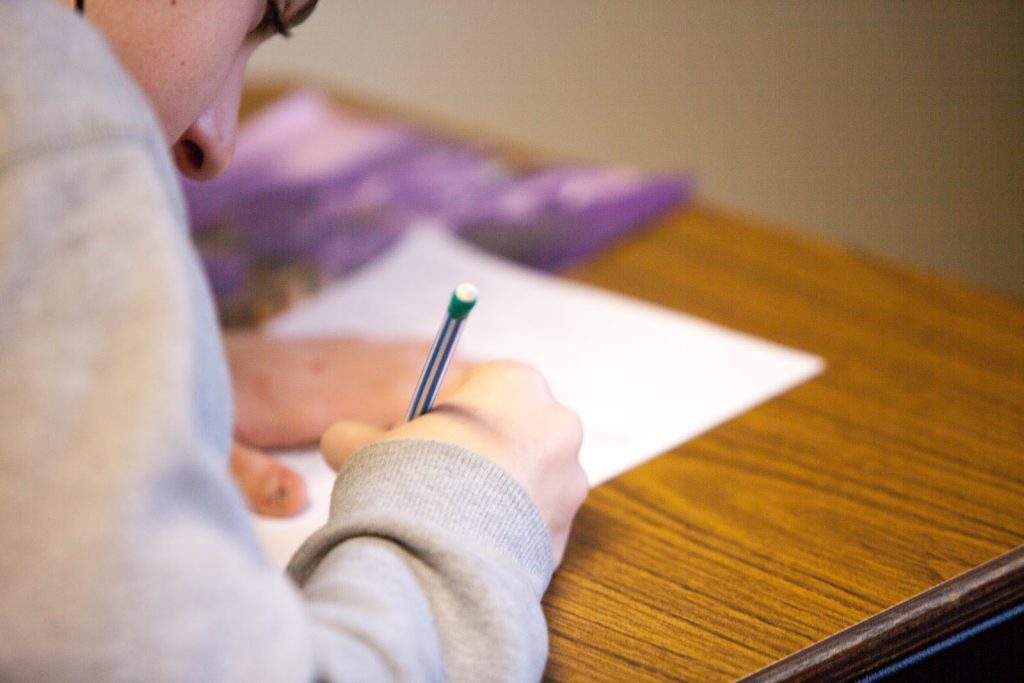Here’s How You Can Be a Good Teacher

The tensions run high when examinations are around, especially board exams. Students and parents scramble from pillar to post in search of old test papers, additional notes, hall tickets, schedules, and so on. Apart from helping children throughout the year, there are five other things you can do to support their efforts.
Want to know about teaching as a profession? Meet Mrs Paolina Chand as she takes us through her journey as a Teacher and guides us into understanding the various facets of the career.
#1 Come Up with Strategies for Revision

Why are you? No one knows your students’ syllabus quite like you do, and you know who needs help with what. Your tips for planning their revision timetable will go a long way and probably help them achieve more than what they could’ve done on their own.
Managing the syllabus: In most boards, not all the topics carry the same weight. Divide the syllabus based on the board’s marking scheme when designing the revision schedule. While leafing through all the topics, they should pay special attention to the concepts that churn more questions.
Managing time: Before the exams begin, help them make a list of the activities they do throughout the day and work together to incorporate a little more studying into it. Recommend which subjects would require more attention, and pan out their study time accordingly.
#2 Work on an Off-time PlanWork desk

Allotting your students some off time as a reward for completing a task, encourages them to unwind in between study sessions. While they need to be focused, they also need to relax and get good rest. It is important to plan the off-time well so that it serves the purpose of relaxing the child, and it helps keep the distractions at bay.
Resting and unwinding: As much as heavy-duty revisions are the need of the hour, getting enough rest and eating well is important too. Students, as well as their parents, need to be told this expressly as students tend to pull “all-nighters”, and disrupt their sleep cycle.
Managing distractions: Students own phones and a steady internet connection these days, which is a recipe for procrastination. One minute they are watching an educational video about the Pythagorean Theorem, and the next they are watching funny cat videos. While taking away their internet privileges is harsh, what you can do is help them plan their breaks, and teach them moderation.
Do you have the right skill set to excel as a Teacher? Take the Mentoria assessment test & talk to our career counsellors to get personalized step-by-step guidance for your future career path based on your strengths and abilities.
#3 Tips on Approaching the PaperWriting on paper

As the “insider,” you can help them figure out how to write their exams well. Discuss older question papers with the students in class, not only in terms of studying, but also in writing the paper.
•You can teach them how to space out their time for each question. Sometimes students tend to waste a lot of time on questions they’re unsure of. Tell them it’s alright to answer the questions they already know first, then the others, as long as they number them correctly.
•Minimise their writing time by teaching them how to divide answers into points. This will allow them plenty of time to read through the paper, making it easier for them to go back and double-check their answers.
•Also, teach them presentation. Warn them against cramming questions unnecessarily onto one sheet. It is better to start a new question on a new page. This way they can also incorporate neatness into the paper.
#4 Innovative Revision Methods

There are numerous ways to revise creatively. Obviously preparing for a board exam can only be fun to an extent, but these tricks can help your students look forward to prepping.
•Divide the class into teams, and conduct a pop quiz. It will work well as a recall session, and if you make a competition out of it, it will become something they look forward to.
•Give audio-visual cues so that the students understand the concept and may retain the subject matter better.
•Students can benefit greatly from revision cards since they can refer to them over time and retain the answers for longer.
•Come up with fun mnemonics for students to recollect answers that have a lot of subpoints. For instance, BODMAS for a math calculation sequence: (B)racket (O)pen (D)ivision (M)ultiplication (A)ddition (S)ubtraction.
#5 Help Destress Them

As a teacher, you are clinically aware of how prepared the students are, or who is capable of what. You are also aware of the stress the students are under when preparing for the boards. You can help them with this.
Manage expectations: Your students need to have realistic expectations from themselves. Sometimes parents put their kids under a lot of pressure by telling them the need to “top”. Closer to the exams, take some time out, and talk to the students about this, reassure them that they just need to do their best. Explain to the parents that each child has unique strengths and interests and that they shouldn’t be concerned if their child isn’t performing well in specific subjects.
Managing stress: Teach the class a few meditation, or cool-down tips, and help them destress whilst the exams are looming over. It is important that children don’t overwork themselves, this will only be counterproductive. Instead, encourage certain activities like a sport, or a fun film to help rejuvenate their minds.
Most importantly, you must express to parents and students that, while necessary, board examinations are only one stage in your academic journey.
Sign up for Mentoria, to discover your ideal academic & career path with our 4-step career guidance.






